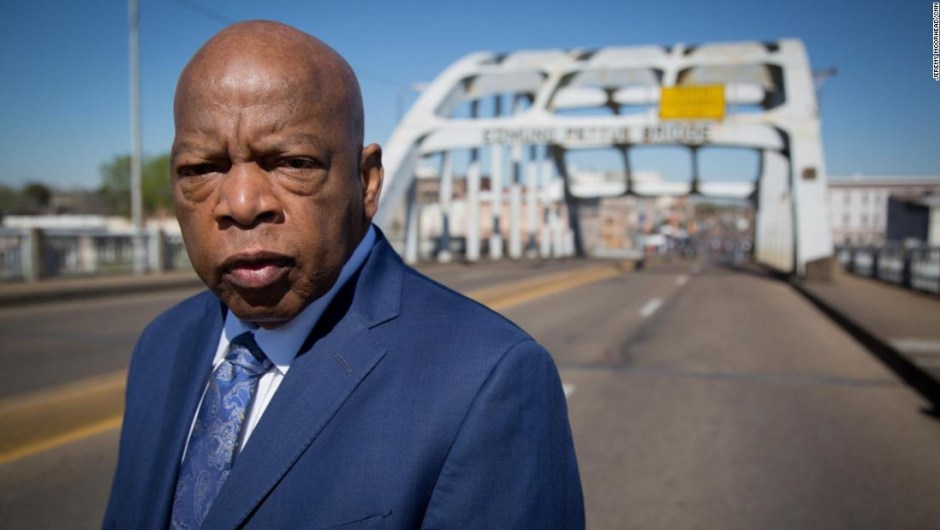Editor's Note: Jess McIntosh is a Democratic strategist and former communications consultant for Hillary Clinton. She is also the co-host of the SiriusXM radio show "Signal Boost". The opinions expressed in this comment are solely those of the author. See more opinions at CNNE.com/opinion
(CNN) - There is a bridge in Selma, Alabama, where John Lewis, 25, almost died during the 1965 "Bloody Sunday" march. This bridge, named Edmund Pettus, a Confederate general and leader of the Alabama Ku Klux Klan encompasses the reality of America's racist bases and the dream of a just country.
The bridge should have been renamed a long time ago. Pettus was an internal terrorist who fought in a treasonous army for the right to claim the property of human beings. Children are not taken to the Edmund Pettus Bridge to learn about it; Families now make the pilgrimage to teach the next generation that men like him can lose. That while these men wielded horrible and violent power, there were very brave people who joined arms and faced that violence in their demand for justice. That heroes like Lewis put on their best $ 5 suit, along with their raincoat and backpack, and fought for black voting rights.
Things should be named as they are, and the bridge at Selma should be renamed to Lewis. This is the bridge where Lewis once thought he was going to die, after being hit so hard by white cops that he suffered a fractured skull. This is the bridge that he repeatedly crossed over the years, including on the arm of the first black president.
There is a necessary skepticism about the superficial changes that are being made at the moment. But to honor Lewis' life legacy and go beyond symbolic change, we must restore the Voting Rights Act.
Lewis was a Democratic activist and congressman. It was a role model for those who preach direct action on the streets and those who believe that change comes from the halls of power. She worked in both spaces, toward the same goal: the right of African Americans to vote.
Lewis, along with so many others on that bridge in 1965, was monumental in passing the Voting Rights Act that year. The law, however, was destroyed in 2013 by the Supreme Court, and Lewis fought to restore it in Congress. On December 6, 2019, Lewis struck a hammer on the floor of the House of Representatives and announced the passage of the Voting Rights Advancement Act to restore the protections of landmark 1965 legislation.
But that bill is still on the desk of the Senate Majority Leader, Republican Mitch McConnell, where it is likely to remain, along with the promises of Amendments 15 and 19 of the United States Constitution, while he is in office.
If there is an obvious way to honor Lewis's legacy, it is this: to do everything possible to guarantee the right to vote for every American. Then we will continue to protest, vote and fight like the devil against white supremacy in our neighborhoods and in our government. We demand Senate approval of the Voting Rights Advancement Act, and we demand new leadership in Washington.
A couple of weeks ago, I was lucky enough to speak to Dawn Porter, director of "Good Trouble," the new documentary about Lewis' life. Protests in the wake of George Floyd's death had erupted across the country, and Lewis had recently appeared, masked and defiant, in a series of photos showing him looking at the Black Lives Matter mural painted on the street outside the White House. I'm white and relatively young, so I know it's not my place to say what this moment is and how it fits into the story, but I asked Porter if he had any idea how Lewis was feeling these days and if he thought this might be the beginning of a new fundamental change in action and understanding. Porter said he believed so.
Renaming the bridge in Selma is an item on a list of long-overdue corrections, but it won't stop the deprivation of rights of African-Americans. It is the fight for voting rights that will help continue Lewis's life work. It began inspiring us more than five decades ago, and its legacy is not just the bridge, it is the march toward justice.

